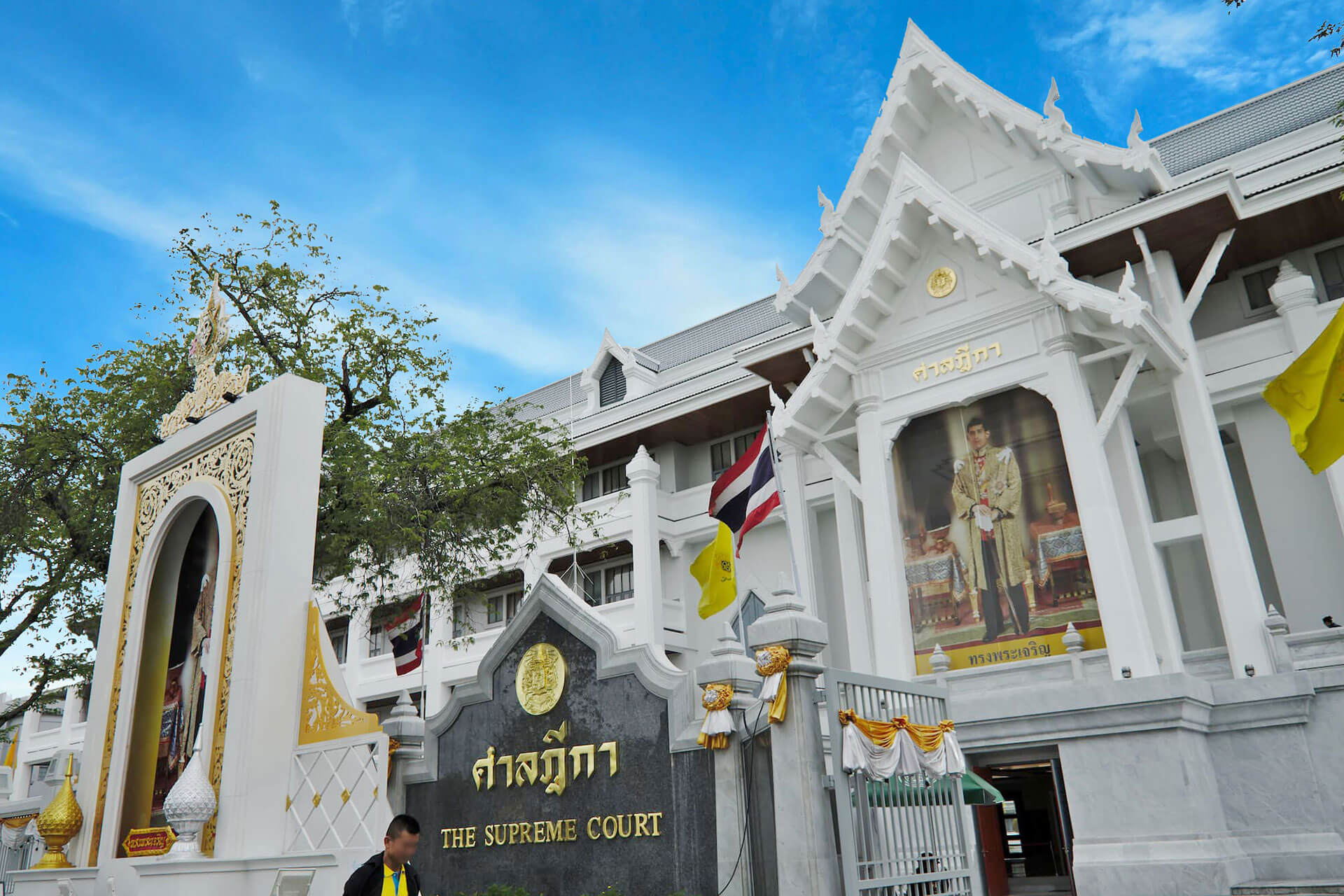
Constitution, Structure and Coverage
It consists of a general court of appeals and nine Thai regional courts. The general court tries appeals to decisions or orders by the Thailand civil and criminal courts. On the other hand, Thai regional courts of appeal hear those from other courts of first instance in regions 1-IX. The court president as the chief justice is assisted by the vice presidents in operating this court.
Section 219 of the 2007 Constitution confers to this court also the power to try election issues, such as revocation of election rights of local councils and administrators. A quorum requires a minimum of three justices. Each court has a research justice division composed of research judges who assist justices in the examination of case facts and issues. These research judges further discuss legal research or information with the justices for purposes of uniformity and fair verdicts. This court hears both Thailand civil and criminal cases.
Appeals for Specialized Cases
The government enacted Act B. E. 2558 in 2015 to enable judges with appropriate expertise in specialized cases to deal with them promptly as well as in uniformity and conformity with the new procedures for appeals and Dika appeals applicable to ordinary civil cases covered by amendments. It has five divisions, namely, the intellectual property and international trade court or IP & IT court, tax court, labor court, bankruptcy court, and the juvenile and family court.
Jurisdiction, its 20 Courts of First Instance
All appeals outside that of the nine regions are handled by the Court of Appeal. Those outside its jurisdiction may also be transferred to the Thai regional courts according to Section 21 of the Law for the Organization of /Courts of Justice B. E. 2543. It also handles appealed cases on narcotics and human trafficking as provided by the Narcotic Cases Procedure Act B. E. 2550 and the Anti-Human Trafficking Procedure Act B. E. 2559.
The 20 courts of first instance within its jurisdiction are the civil court, the criminal court, the Thon Buri civil court, Thon Buri criminal court, Bangkok South criminal court, Bangkok South civil court, Minburi criminal court, Minbury civil court, Tling Chan criminal court, Taling Chan civil court, Phrakhanong criminal court, Phrakhanong civil court, Bangkok North Kwaeng court Bangkok North municipal court, Bangkok South municipal court, Thonburi Kwaeng court, Thonburi municipal court, Dusit Kwaeng court, Dusit municipal court, the Pathumwan municipal court, Pathumwan municipal court, Don Mueang Kwaeng court, Don Mueang municipal court, Bang Bon Kweang court, Bang Bon municipal court, and the Central criminal court for corruption and misconduct cases.
Specialized Cases
The Court of Appeal also handles these cases through its five divisions. These divisions are:
The Intellectual Property and International Case Division
By its name, this court reviews decision on intellectual property and international trade courts by judges with expertise and authoritative insight on the lines. Complementarily, the division also tries Thailand civil and criminal cases relating to intellectual property and international trade cases. These cases are usually violations of intellectual property, such as trademarks, copyrights, and patents covered by the Trademark Act, the Copyright Act, and the Patent Act. Others are civil cases violating technology transfer and licensing agreements. International trade cases, on the other hand, relate to international sales, exchange of goods, financial instruments, carriage, services, insurances, and related dealings. The Division also handles Thailand civil and criminal cases involving the layout and design of integrated circuits, trade or scientific secrets or discoveries, geographical information, and protective measures for plant varieties.
Tax Case Division
As the name indicates, this division hears appeals on decisions on cases between the public and private sectors on taxes and revenue assessments or collections. Like other divisions, judges who review appealed decisions must possess appropriate and competent knowledge, experience, and insight on taxes and tax issues. Most of the cases handled in this division involve claims of tax, revenue, debts, and tax refunds by the government.
A Tax Appeal Committee is empowered to reaffirm, repeal, reverse and amend any tax assessment. The taxpayer may appeal within 30 days upon receipt of the decision of the Committee. But before this can be done, the taxpayer needs to pay all outstanding taxes or fines relating to the case he or she wishes to appeal unless the appeal is an injunction order of the Governor of the Revenue Department. All contested decisions by the appeals court will directly go to the Supreme Court within 30 days of the tax court’s decision or order. Appeals below 50,000 baht on the basis of a question of fact will not be accepted unless authorized by the presiding judge.
Labor Case Division
This division explicitly reviews dispute decisions on issues between companies and their workforce. The most common issues are employment agreements or contract stipulations, rights of employers and employees, and the laws on labor relations.
Bankruptcy Case Division
Judges in this division adjudicate appeals by using the law on bankruptcy. They also review civil and criminal cases where the bankruptcy law applies.
The country’s bankruptcy laws underwent changes in 1997 following the Asian financial crisis. It is now the subject of Chapter 3 on rehabilitation, which resembles the American concept in the US Chapter 11 document. Rehabilitation plans as against forced liquidation are today made available to both creditors and debtors.
Juvenile and Family Case Division
Judges review appealed decisions or orders by the juvenile and family courts based on the Civil Procedure Code or the Criminal Procedure Code. The division, however, does not accept appeals of judgments that concern children or young people aged 10 to 15 or to reduce the criminal penalty of minors.
Criminal offenses brought against minors or those transferred by another court with jurisdiction over the offenses; family law matters; the well-being of juveniles and family members; protection issues and all similar cases against minors all fall under the jurisdiction of a juvenile and family court.
